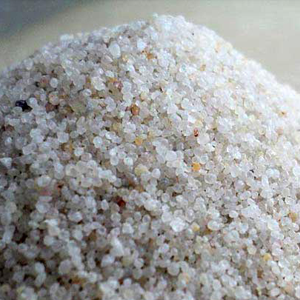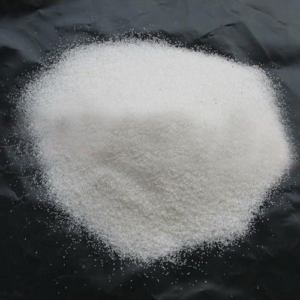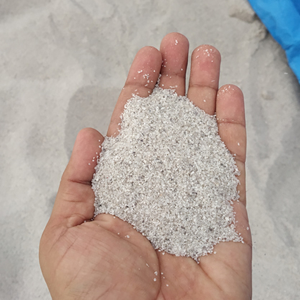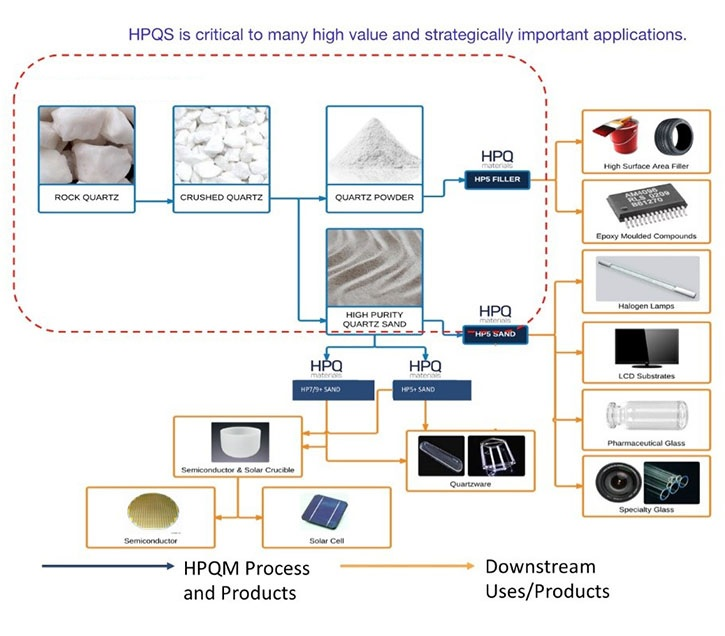Quartz Sand Suppliers
Definition
A hard mineral consisting of silica, found widely in igneous and metamorphic rocks and typically occurring as colourless or white hexagonal prisms. It is often coloured by impurities (as in amethyst, citrine, and cairngorm). High quality Quartz Sand Suppliers in Kolkata, West Bengal, Burdwan, Siliguri, Bihar, Jharkhand, Odisha.
Generally it is a crystalline material composed of silica (silicon dioxide). The atoms are linked in a continuous framework of SiO4 silicon-oxygen tetrahedra, with each oxygen being shared between two tetrahedra, giving an overall chemical formula of SiO2. Quartz is the second most abundant mineral in Earth’s continental crust, behind feldspar.
Quartz exists in two forms, the normal α-quartz and the high-temperature β-quartz, both of which are chiral.The transformation from α-quartz to β-quartz takes place abruptly at 573 °C (846 K; 1,063 °F). Since the transformation is accompanied by a significant change in volume, it can easily induce fracturing of ceramics or rocks passing through this temperature threshold.




PLANT & MACHINERY
Quartz Applications :
1) Jewelry and gemstones
For centuries, quartz has been used in jewelry production and as gemstones. The hard, polishable, crystalline and durable nature of quartz make it an excellent material for this purpose. The varieties of quartz popularly used as jewelry and gemstones include Citrine, Amethyst, Ametrine, rose quartz, Aventurine, and Opal. Quartz with microcrystalline (cryptocrystalline) structures like Agate and Jasper is also used as gemstones.
2) Glassmaking
Glassmaking is one of the primary uses of quartz. Glass is manufactured from a chemical compound known as Silica dioxide (SiO2) (a colorless crystalline compound found as quartz, sand or flint). This silica dioxide (which must be 99.9% exceptionally pure) is melted and allowed to cool down into whichever shape or dimension desired. Optical-based quartz crystals are used in the manufacture of lasers, microscopes, telescopes, electronic sensors, and scientific instruments.
In India, almost half of the quartz consumption is in the glass industry. Quartz sand is commonly used in the Indian glass industry for making container glass, flat glass, plate glass, specialty glass, fiberglass, bottles, table glassware, and other glassware. Quartz supplying industries such as Unique Crystal minerals LLP supply a large amount of quartz sand which is widely used in the Indian Glassmaking Industry.
3) Watches and clocks
Quartz crystals contain oscillators that possess the ability to vibrate at precise frequencies that helps to regulate the movement of the watch or clock, thereby making them accurate timepieces. Quartz crystals possess the piezoelectric effect (the ability to produce electricity when subjected to mechanical stress) which is also used to keep a tab on time.
4) Foundry materials (Metal Casting Industry)
Quartz sand is often blended with cohesive agents such as clay, resin sodium silicate, and oil, and used for the purpose of molding and metal casting. The properties of quartz sand such as high melting point, high strength and refractoriness help in the process of metal casting. Also, microcrystalline quartz is used to smoothen out crude edges on metals after they are cut, cast or drilled.
In the metal casting industry, Quartz sand is also added to molten metals for the process of removing impurities, mostly oxygen. The sand gets bonded with the impurities and is then easily removed.
5) Refractory industry
Quartz sand is used in the production of refractory bricks because of its sheer strength and resistance to heat. It is also used as a flux to smelt out crude edges on metals after they have been cast, cut or drilled.
6) Abrasives
Due to its hardness (it is harder than most natural minerals), and resistance to corrosion, quartz sand is considered a wonderful abrasive. Also, it is used for sandblasting, glass grinding media, scouring cleansers (powder), and sanding and sawing grit.
7) Petroleum industry
Silica sand, alongside water and other chemicals under high pressure, is forced down into a bedrock formation via a well. The high pressure fractures the bedrock, the silica sand injects into the fractures and holds it in place, creating a passage for the flow of natural gas from the bedrock formation into the well. This process is known as hydraulic fracturing.
8) Kitchen Countertops
Engineered quartz stone, which are industrially made from raw quartz, are popularly used as countertops and slabs in residential and commercial buildings.
Certain characteristics of engineered quartz stones distinguish them from natural stones such as granite and marble. The non-porous property of quartz makes it resist retaining stains. Hence, quartz countertops are easy to clean, does not retain stain, attractive, and luxurious.
9) Sharpening tools
Novaculite, a form of cryptocrystalline or microcrystalline quartz, is used in making medical incision devices, cutting weapons, and sharpening cutting tools for thousands of years even up to this day. Hones are used to sharpen razor, while whetstone or smooth stone is used to sharpen the edges of tools and knives.
10) Crucibles
Laboratory Crucibles are the containers that are used for holding chemicals when chemical or thermal tests are performed. Quartz has a very high melting point and is chemically inert, and so, is employed into making quartz crucibles that are used in the laboratories for performing chemical reactions and tests. The advantages quartz crucibles offer includes low expansion, thermal shock resistance, and excellent dimensional stability. Fused Quartz made from quartz granules is generally used in making such vessels.
11) Electronics
Just like in the production of wristwatches and clocks, quartz crystals are also used in electronics because it generates current on its surface when bent or compressed. Quartz crystals have been used for years to give an accurate frequency for all radio transmitters, radio receivers, GPS transmitters, and computers. This accuracy comes from the fact that quartz crystal is unaffected by most solvents, and remains crystalline to hundreds of degrees Fahrenheit.
12) Filler
Quartz sand and ground quartz (quartz in powder state) are used as filler in the manufacture of adhesives, putty, paint, and rubber. This powder provides properties such as durability, chemical inertness, strength, and wear-resistance.
Quartz sand is used in the manufacture of traction in railroad and mining industries due to its durability and large grains so as to minimize fracture. It is also used in the recreation of golf courses, volleyball courts, baseball fields, children’s sandbox, and beaches.
13) Ceramic Industry
Quartz sand is used in the ceramic industry for making ceramic tiles. The silica present in the sand helps in providing white color to the ceramic ware and helps in making the ceramic body.
14) Tripoli
Also known as rottenstone, it is high-quality crystalline silica usually in powder form. It is used to polish the jewelry, buff out stains from wood, as a filler, in plastics, paint, and rubber, and in toothpaste and soap production. Tripoli particles are rounded rather than sharp, thus, it is considered a mild abrasive.
15) Synthetic crystals
Synthetic crystals are grown in laboratories. They are artificially produced from dissolving raw silicon diode(SiO2) in an alkali water solution at a high temperature. Although this process is slow, it provides high purity and generally high-quality crystals that are almost as good as the naturally found quartz crystals. Synthetic quartz crystals are resistant to acids, corrosion, high temperatures, wear, impact, compression, bending and infiltration.
Synthetic crystals are employed in the electronics industry, semiconductor and the solar industry, photomasks, and even lithographic tools.
16) Water treatment plants
Quartz sand filtration system is using quartz sand as a filtration medium, at a certain pressure, if the higher turbidity of the water pass through quartz, it can retain remove suspended solids, organic matter, colloidal particles, micro-organisms, chlorine, odor and some heavy metal ions effectively.
Offered brown Quartz Sand is found in the form of minerals at earth’s surface. Via going through multiple processing, like crushing, grinding the supreme grade of Quartz Sand in favourable conditions offered material is formulated. Presence of silica content in it make it applicable for several purposes, such as construction, water purifying, in the formation of rail road, as water purifiers, foundry and other purposes. This product is known for its distinct features, such as its purity, effectiveness and longer shelf life. This provides acid heat resistant to the refractories, ceramics and enamel. This common brown Quartz Sand can be availed at economical rates. We are trusted Quartz Sand Supplier in Kolkata, Siliguri, Burdwan, West Bengal, Bihar, Jharkhand, Odisha, and Bangladesh.
User of Quartz Sand are spread over a very wide range of industry where functional roles of it are also varied, like Quartz Sand is used as a filler in porcelain, ceramics, sanitary ware and Engineered stone industry while Quartz Sand are used a lining refractories in induction furnaces, as a flux in smelting operations. We are one stop destination for acquiring minerals products and compounds. It has acquired the position of a prestigious supplier of Quartz Sand. Quartz Sand is found in nature in several forms, including quartz and opal. In fact, it has 17 crystalline forms. The most common constituent of Quartz Sand in inland continental settings and non-tropical coastal settings is silica, usually in the form of quartz because the considerable hardness of this mineral resists erosion. However, the composition of sand varies according to local rock sources and conditions.
Applications: Cement Sheets, Sodium Silicate, Refractory & Glass, Construction, etc. With our state of art manufacturing unit, we are capable of providing customized processed China clay to customer’s specification in quality and delivery schedules they want.
- Glass Making
- Abrasive
- Foundry Sand
- Petroleum Industry
- Ceramic
- Construction Industry
- Sanitary ware
- Tiles
- Ferro Alloys
- Ferro Silicon
- Ferro Chrome
- Oil drilling
- Artificial Granites
- Electronic Industry
Conclusion
Quartz possesses certain physical, chemical and electric properties that make it highly usable in a wide range of industries and sectors. From Jewelry making and gemstones, for its ability to luster, to brick making in the refractory industry for its physical strength and to watches and clocks for its piezoelectric property, quartz find uses in a wide range of industries.
In India, Quartz is mainly consumed in the glass and cement industry, followed by Ferro-alloys, Iron & Steel and Foundry Industry.
